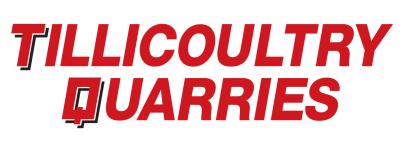Waste for waste treatment
Veolia Environmental Services, the waste-management arm of Veolia Environment, operate six energy-from-waste (EfW) plants, which produce electricity for the National Grid.
Although EfW is a very clean process, Veolia Environmental Services still have to dispose of residual fly ash. As the ash contains small traces of lead, cadmium and other metals found in everyday household products, it is not suitable for block making and is too light and abrasive to go direct to landfill.
To solve the problem, Veolia process the fly ash along with a chemical sludge waste product collected from the metal-finishing industry. This waste contains residual zinc, tin, nickel and other base metals used in a range of processes.
At Aldridge in the West Midlands, Veolia have built a plant that processes the two by-products into a semi-dry neutral cake suitable for landfill. The plant, which has been designed, fabricated, installed and commissioned by Taylor Woolhouse, comprises storage silos and tanks, a mixing station, output conveyors and a load-out bunker.
Fly ash is brought to the plant by tankers where it is blown into one of six silos with a combined capacity of 678m3. The chemical sludge arrives separately in sealed tankers and is pumped into four feedstock tanks. Fabricated from mild steel, the silos and the tanks are fitted with volume indicators supplied by WAM Engineering.
With the composition of trace elements varying with each delivery, the Aldridge plant has the support of an on-site lab that tests each delivery for contaminants and viscosity before setting the blending recipe for each batch. Fly ash is then fed to the three ploughshare mixing stations, while four high-torque, centrifugal slurry pumps inject the sludge.
After mixing, the neutralized cake is dispensed on to a 17m horizontal troughed conveyor and from there on to a 12m inclined troughed conveyor that off-loads into a 250m3 storage bunker. From there the cake is loaded into 20-tonne tippers for transport to a landfill site.
Taylor Woolhouse Ltd, Carr House, Greasborough Road, Rotherham, S. Yorks S61 4QQ; tel: (01709) 379500; fax: (01709) 379600.
Although EfW is a very clean process, Veolia Environmental Services still have to dispose of residual fly ash. As the ash contains small traces of lead, cadmium and other metals found in everyday household products, it is not suitable for block making and is too light and abrasive to go direct to landfill.
To solve the problem, Veolia process the fly ash along with a chemical sludge waste product collected from the metal-finishing industry. This waste contains residual zinc, tin, nickel and other base metals used in a range of processes.
At Aldridge in the West Midlands, Veolia have built a plant that processes the two by-products into a semi-dry neutral cake suitable for landfill. The plant, which has been designed, fabricated, installed and commissioned by Taylor Woolhouse, comprises storage silos and tanks, a mixing station, output conveyors and a load-out bunker.
Fly ash is brought to the plant by tankers where it is blown into one of six silos with a combined capacity of 678m3. The chemical sludge arrives separately in sealed tankers and is pumped into four feedstock tanks. Fabricated from mild steel, the silos and the tanks are fitted with volume indicators supplied by WAM Engineering.
With the composition of trace elements varying with each delivery, the Aldridge plant has the support of an on-site lab that tests each delivery for contaminants and viscosity before setting the blending recipe for each batch. Fly ash is then fed to the three ploughshare mixing stations, while four high-torque, centrifugal slurry pumps inject the sludge.
After mixing, the neutralized cake is dispensed on to a 17m horizontal troughed conveyor and from there on to a 12m inclined troughed conveyor that off-loads into a 250m3 storage bunker. From there the cake is loaded into 20-tonne tippers for transport to a landfill site.
Taylor Woolhouse Ltd, Carr House, Greasborough Road, Rotherham, S. Yorks S61 4QQ; tel: (01709) 379500; fax: (01709) 379600.



